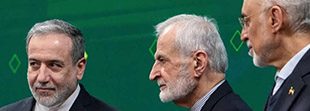Survival of the 1988 Mass Executions
Mosadaghi is among the survivors of the 1988 prison massacres, during which thousands of political prisoners were executed following a fatwa issued by Supreme Leader Ruhollah Khomeini. Many of the executed were members or supporters of opposition groups, including the PMOI. Mosadaghi managed to survive, but his experiences in prison left a lasting impact on his activism and research.
Exile and Human Rights Work
After his release, Mosadaghi fled Iran in 1994, settling in Sweden, where he resumed his political and social activities. From 1994 to 1999, he focused on documenting human rights violations in Iran. His reports were submitted to international organizations such as the United Nations Human Rights Commission, the UN Third Committee, the European Parliament, and the International Labor Organization (ILO).
Between 1997 and 2000, Mosadaghi worked closely with the ILO to advocate for Iranian workers and wage earners. His research during this time resulted in two notable books:
- The United Nations and Violations of Human Rights in Iran
- The International Labor Organization and Violations of Fundamental Labor Rights in Iran
From 2000 onward, he conducted independent research on human rights abuses in Iran. His work has been instrumental in documenting the plight of political prisoners and exposing torture and executions. It was during this period that he developed a strong focus on the concept of “seeking justice.”

